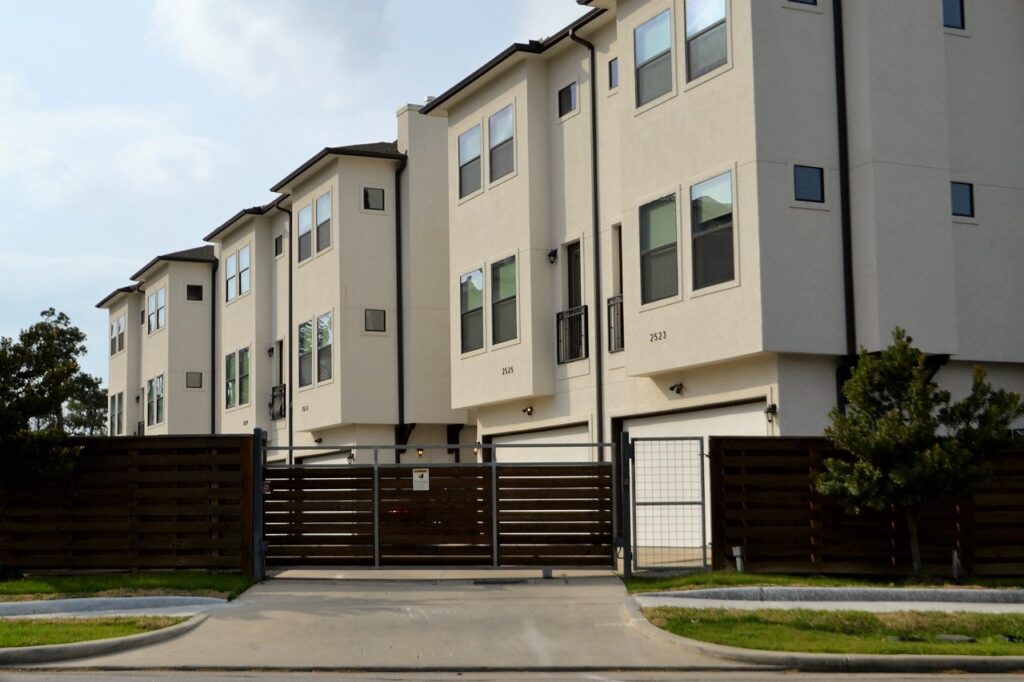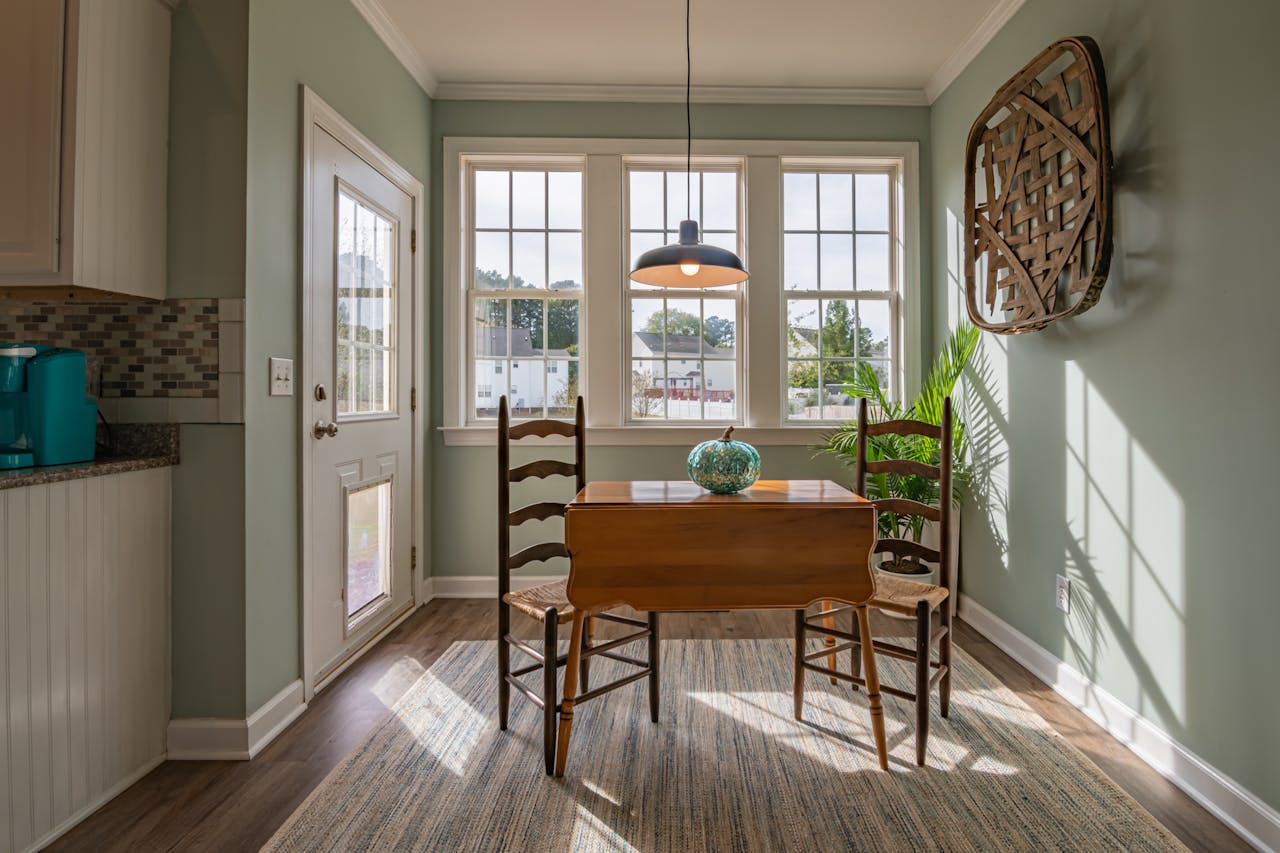How to Achieve Your Real Estate Investing Goals With Rental Property Mortgage Loans
The world of rental properties has exploded in recent years, offering exciting opportunities for investors. Considering that there are 2,654 new renters in the U.S. every day, owning a rental property can be a lucrative investment.
Whether you dream of a steady income from long-term leases or prefer to capitalize on the short-term rental boom with platforms like Airbnb, securing the right financing is your first step toward success.
In this guide, we’ll be covering everything you need to know about rental property mortgage loans, whether you’re planning on purchasing or refinancing. Let’s get into it!
What Are Rental Property Mortgage Loans?
Unlike standard home mortgages, rental property mortgage loans cater specifically to investors looking to purchase or refinance rental real estate.
Rental property mortgage loans are specialized financing options designed to help you buy or refinance an investment property – opening doors to building wealth through real estate. These loans often take into account the unique factors associated with rental income rather than solely relying on the borrower’s personal income.
Qualification requirements tend to vary significantly between lenders and the type of loan. There are various types of rental property mortgage loans, including non-QM loans (non-qualified mortgages), conventional loans, and government-backed options. Choosing the right type depends on your individual qualifications and needs, including credit score, down payment availability, and long-term investment goals.
Rental Properties For Rental Property Mortgage Loans
Long-Term Rentals
Long-term rentals are properties that are leased out to tenants for extended periods, which can range from a few months to a few years. Long-term rentals offer investors a steady stream of rental income, often with a predictable and reliable schedule. Investors can also benefit from potential property value appreciation over time with this strategy.
However, compared to short-term rentals, they may require less hands-on management but generate slightly lower returns. Landlords for long-term rentals are responsible for finding tenants, managing repairs and maintenance, and making sure the property complies with local regulations. It’s a more traditional approach to real estate investment that offers stability and potentially lower vacancy rates compared to the short-term market.
Short-Term Rentals
A short-term rental is a property leased for a brief period, typically from one night to several weeks or months. Common examples include listings on online platforms like Airbnb, VRBO, and HomeAway. The primary advantage of short-term rentals is their flexibility for both renters and property owners. Renters can secure accommodation for specific durations, while owners can earn income from their properties when they are not being used.
It’s important to note that a permit is required to operate a short-term rental, and the rules and regulations for obtaining this permit can vary depending on the property’s location.

Rental Property Mortgage Loans for Purchases
Securing the right financing is the first step to building a successful rental property portfolio.
Next, we’ll explore the various loan options available to real estate investors to help you find the best fit for your investment strategy.
Non-QM Loans
Non-QM loans (non-qualified mortgages) offer financing options for borrowers who don’t fit the traditional mold for qualifying for a mortgage. These loans allow for flexible income verification, so borrowers can use alternative methods like tax returns or bank statements to show that they can repay the loan. Here are a few non-QM options to consider for a rental property:
- Debt-Service Coverage Ratio (DSCR) Loans: These loans use your property’s rental income to help you qualify for a mortgage rather than your personal income.
- Fix-and-Hold Loans: These loans provide you with funding to purchase, renovate, and then rent out a property.
- Construction Loans: These loans provide you with incremental funding to build a property from the ground up. Afterwards, you can choose to keep the property or sell it.
- Interest-Only Mortgages: These loans have an interest-only period of three to 10 years, allowing for lower monthly payments and improved cash flow.
Conventional Loans
Conventional loans are the most common type of loan for primary residences, however, it can be much more challenging to qualify for an investment property. Conventional lenders typically require a higher credit score, a larger down payment (often 20-25%), and proof of stable rental income to show them that you’re successfully managing the property and you can make mortgage payments. Additionally, the DTI requirements are often more strict, and there may be higher reserve requirements.
On top of that, the property itself might need to meet certain standards to be eligible for conventional financing.
Government-Backed Loans
For those who are eligible, government backed loans like FHA and VA loans offer lower down payments and competitive rates. However, these loans come with specific requirements and limitations.
FHA loans require mortgage insurance premiums (MIP) and the property can only be rented out if you’re living in one unit of a multifamily property, while VA loans are only eligible for veterans and service members. These programs may open up doors for some investors, but it’s important to understand their limitations and explore other options if they don’t meet your specific needs.

Rental Property Mortgage Loans for Refinance
Refinancing your rental property can be a great move to optimize your investment returns. Just like purchasing a rental property, you have a few loan options available, including non-QM loans, conventional loans, and government-backed loans.
The refinance options available are similar to those for purchase, but it’s important to note that terms and requirements can vary between lenders and loan types. Factors like the property’s occupancy rate, rental income, and your overall qualifications will affect the loan terms offered to you.
Besides the loan options, there are also several different refinance options to choose from, including:
- Rate-and-Term Refinance: Replaces your current mortgage with a new one, aiming to secure a lower interest rate or adjust the loan term.
- Cash-Out Refinance: Replaces your current mortgage with a larger loan, providing you with the difference in cash.
- Home Equity Line of Credit (HELOC): A revolving line of credit secured by your home’s equity, allowing you to borrow against it as needed.
- Home Equity Loan: A lump sum loan secured by your home’s equity, repaid with fixed monthly payments.
Carefully research and compare different refinance options to find the best one for you. Defy Mortgage offers all of the purchase and refinance options listed above – contact us for a free consultation.
Why Refinance Your Rental Property?
Refinancing your rental property comes with several great advantages depending on your situation. By refinancing, you can:
- Secure a Lower Interest Rate: If interest rates have dropped since you obtained your original mortgage, refinancing can significantly reduce your monthly payment, increasing your cash flow.
- Modify Repayment Terms: Adjust the loan term to either shorten the repayment period and pay off the mortgage faster or extend the term for more manageable monthly payments.
- Unlock Hidden Equity: Access the equity built up in your property through a cash-out refinance, providing funds for various investment opportunities.
- Invest in Property Improvements: Use the cash from a cash-out refinance to upgrade your rental property, potentially increasing its value and rental income.
- Improve Cash Flow: Refinancing your rental property mortgage may be beneficial if your current payments consume a significant portion of your rental income. This strategy could potentially reduce your monthly obligations and improve cash flow.
Keep in mind that you should carefully consider your personal situation and whether it would make a positive impact on your investment. While refinancing can be a good idea for some, it may not make sense for others.
Pros and Cons of Rental Property Refinancing
Pros:
- Potentially secure a lower interest rate
- Improve your cash flow
- Unlock the equity you’ve built in your rental property
- Use home equity to consolidate debt
- Proceeds can be used to upgrade and maintain the property
- Take advantage of potential tax benefits
Cons:
- Additional closing costs
- Risk for higher interest rate depending on market rates
- Potential to be over-leveraged
- Can reduce property’s equity

Tips on Purchasing or Refinancing a Rental Property
Navigating the world of rental property mortgage loans often requires a bit of planning and research beforehand. Whether it’s a brand new loan for purchase or a refinance, securing a rental property mortgage is a big decision that can come with a potentially significant financial impact.
Below, we’ve compiled a few tips to help guide you through the process of purchasing or refinancing a rental property, allowing you to make informed choices that align with your investment goals.
Find the Right Lender
Securing the right rental property mortgage or refinance for you relies heavily on partnering with the right lender. Shop around and compare interest rates, fees, and terms offered by different lenders. Look for lenders with experience in investment property financing, as they understand the unique aspects of these loans.
While traditional banks and credit unions are a common route to go, consider private mortgage lenders, like Defy, for more flexible and customizable solutions. A good lender will guide you through the process and provide clear explanations to make you feel comfortable and confident with the loan process.
Understand Rental Property Expenses
Before diving into a rental property investment, it’s important to analyze potential expenses beyond just the monthly mortgage payment. Factor in other miscellaneous expenses like property taxes, homeowners insurance, maintenance costs, vacancy periods, and potential property management fees.
These expenses can significantly impact your property’s profitability. Create a detailed budget to assess your potential cash flow and determine if buying the property makes sense financially.
Market Research
Conducting in-depth market research is an essential part of assessing the viability of a rental property investment. Understanding local market trends, vacancy rates, and rental prices can help you find the best neighborhoods and areas to buy a rental property.
Look into factors such as job growth, school quality, crime rates, and future development plans, since these can significantly impact property values and rental demand. Extensive market research helps you to make informed decisions and invest in locations with strong appreciation and rental potential.
Calculate the Return on Investment (ROI)
Another crucial step in evaluating a rental property is calculating its potential return on investment (ROI). Divide the annual net operating income (rental income minus operating expenses) by the initial investment to determine the ROI. Compare this figure to other investment opportunities to assess the property’s profitability.
Legal and Regulatory Compliance
When it comes to rental properties, they’re typically subject to local, state, and federal laws and regulations. You’ll need to get up to speed on landlord-tenant laws, fair housing regulations, and zoning requirements in your area.
Any necessary permits and licenses should be secured, and make sure your lease agreements are legally sound and protect your interests. Staying compliant with legal and regulatory requirements can help you avoid fines, legal disputes, and potential liabilities in the long run.
Assess Your Equity Position
If you’re considering a cash-out refinance, understanding your home equity is key. Calculate the difference between your property’s current market value and the outstanding mortgage balance. Lenders typically require a minimum equity percentage (often 20-30%) to approve a cash-out refinance. Evaluate how much cash you can potentially unlock and how you plan to use it to maximize your investment’s return.

Rental Property Mortgage Loans FAQs:
- What is a rental property mortgage?
A rental property mortgage is a specific type of loan used for purchasing or refinancing a property you intend to rent out to tenants, not live in yourself. Usually, these loans have different terms and requirements compared to a mortgage for a primary residence.
- Is a rental property a good idea?
The answer to this question depends on several factors like the location, property management, and market conditions. A rental property can be a good investment if it generates steady rental income and appreciates in value over time, but comes with management and maintenance responsibilities.
- How can I qualify for a rental property mortgage?
Qualification requirements can vary significantly based on lenders, as well as loan types. Generally, you should aim to have a credit score of 620 or higher, along with a minimum down payment of 15-20%. Proof of income is also important for qualifying for a rental property mortgage, but this can look different depending on the loan type. For example, DSCR loans allow you to use rental property income to qualify, whereas bank statement loans require bank statements instead.
- What credit score do I need to be eligible for a rental property mortgage loan?
The minimum credit score required varies depending on the lender and the loan type. However, you can expect most lenders requiring a credit score of 620 or above.
- What are my options for rental property mortgage loans?
Rental property mortgage loans come in all shapes and sizes. Some options to consider are:
- Non-QM Loans (non-qualified mortgages): Offer more flexible loan qualification requirements and terms since they aren’t subject to the strict lending criteria set by the Consumer Financial Protection Bureau (CFPB).
- Conventional Loans: A common loan type that has stricter qualification criteria since they’re QM loans (qualified mortgages) and have to follow CFPB guidelines.
- Government-Backed Loans: Programs offered by government agencies to make homeownership more accessible, which include FHA loans for multi-unit properties and VA loans if eligible.
- Where can I get a rental property mortgage loan?
You can get a rental property from many different lenders, including banks, credit unions, and private mortgage lenders. If you’re looking for flexible and customizable loan options, consider choosing a private mortgage lender like Defy.
- Can I get a cash-out refinance on a rental property?
Yes! You can get a cash-out refinance on a rental property and use the cash for various purposes.
- What can I use a cash-out refinance for?
You can use a cash-out refinance on a rental property for various purposes, like renovations to improve rental income, purchasing another rental property, or consolidating debt.
- What are some alternatives to a cash-out refinance on a rental property?
Alternatives to a cash-out refinance include home equity lines of credit (HELOCs) and home equity loans, which provide access to cash without changing your existing mortgage.
- What are some factors to consider before buying a rental property?
Before buying a rental property, consider factors like location, rental potential, ongoing costs (maintenance, property taxes), and whether you can manage the property or hire a property management company.







